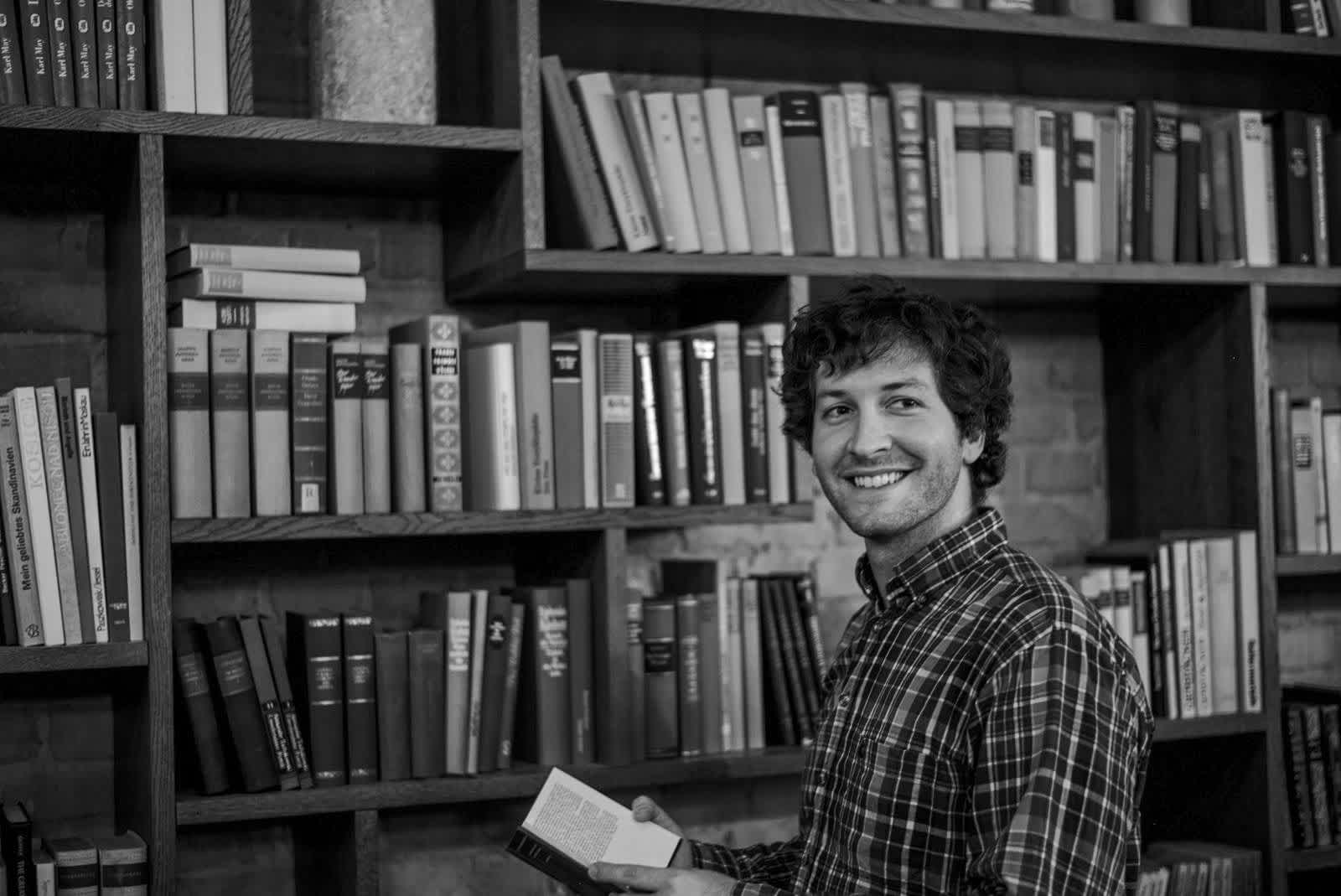Wunderdog looks and feels like the Doggos that work at Wunderdog. We wanted them to tell you in their own words who they are and what they do!
I am a 31-year-old American. Moved to Europe in 2014 to pursue an MSc in Digital Composition and Performance at the University of Edinburgh in Scotland. I met my wife on my first day in Edinburgh and we moved to Germany after I finished. At the end of last year, I decided it was time to finally move to Berlin because the music scene is the best here for the music that I like.
I am one of those programmers who learned programming by accident. My master’s degree was supposed to be about music, but it ended up being about how to use the computer as an instrument. Not to imitate other instruments in Logic or Ableton (although I can definitely do that too), but to use processes only possible in the digital world. For instance, weird things like algorithmic composition or sample-based sound manipulations. I ended up programming complex interactive, composition using combinations of LISP, Javascript, MaxMSP and SuperCollider as the main languages. My final project was a 30 minutes long composition that I performed live with a software I built.
Although I don’t think most people will understand what I’m talking about, I actually consider the computer as my current main musical instrument.
I find the process of coding very similar to that of practising bass in feeling and in goal. It was always difficult to explain why I was practising bass 8 hours a day in high school and college to friends and family who did not have the musical drive that I do. It’s still hard to explain why I code for 8 hours a day to non-coders. Although I don’t think most people will understand what I’m talking about, I actually consider the computer as my current main musical instrument. By working toward efficiency and understanding more every day, when inspiration hits me to build a digital system, I will be able to quickly implement it in an efficient way. It’s kinda awesome that Wunderdog pays me to practice my instrument every day:-)
My experience at Wunderdog
I was a bit scared about what working for Wunderdog would be like when I started. It was the first time that a company could not tell me directly what type of project I would be doing. However, after learning that companies were being applied to on my behalf based on my skill set, my confidence was built up again that Wunderdog would be a good fit for me. I am also very happy with the other Wunderdog consultant chosen to work with me on my current project, Struppi. My American optimism is well balanced by his German (and Finnish?) pessimism. Every happy-go-lucky idea I think of, he brings down to earth and every hopeless scenery he paints I add rainbow glitter to :-).
I think at the Berlin office we all have high expectations of ourselves without needing external comparisons to make ourselves feel good.
For some company cultures, ‘healthy competition’ is a term thrown around as a euphemism for “do better than others” and can often lead to colleagues undercutting or holding back their peers. ‘Healthy competition’ for me means “do the best you can” and really is about competing with your former self. I think at the Berlin office we all have high expectations of ourselves without needing external comparisons to make ourselves feel good. The other doggos are helping me whenever I need and I help them whenever they need.
Continuous learning and openness for experimentation are very important for me at work. I believe the team spirit of Wunderdog is one of shared learning. If somebody fucks up, we all laugh and learn from it. If somebody has a question, no matter how stupid, we all learn from it. If somebody wins, we all win.
At Wunderdog, you are encouraged to be who you are and to not turn off when you get to the office.
I have also learnt much from my colleagues not just about programming, but about cultural and societal topics. Wunderdog is by far the most culturally diverse workplace I’ve been a part of in Germany. It’s nice to hear Finnish, German and English used in the same 5 minutes. At Wunderdog, you are encouraged to be who you are and to not turn off when you get to the office. This with a communicative feel leads to the perception that I can talk to any developer and it isn’t annoying to them. Although we are growing in Berlin, I have seen this trait common in all new consultants so far.
The best things in working as a consultant
Not having to work on the same website for more than 6 months
Being able to learn from a variety of workplaces and people
Being valued for your opinion more than a full-time worker
Freedom to give a hard pass on projects that I don’t want to do
Freedom to reach out to project I want to be involved in
Being able to direct recruiting emails to Viggo (our sales dude)
Also, being personable with your customer is much more important as a consultant than as a developer. I always felt as a developer that my interpersonal skills were undervalued and only my hard technical skills had value. I have been told at old jobs to “Shut up and code” :’-( . As a consultant, however, my ability to connect to others is finally seen as an asset.
